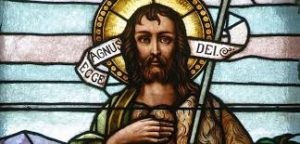ADVENT WEEK 03 04 – Year I
(Is 54:1-10; Ps 30; Lk 7:24-30)
*******************************
Have you ever spoken or acted out of a burst of anger that you later regretted?
Today’s liturgy invites us to trust in God’s unconditional love for us all and all of creation.
At first glance, it seems that Isaiah has God regretting having spoken and acted out of anger. Verse 54:8 reads, “In an outburst of wrath, for a moment I hid my face from you.”
The prophet depicts God as responding to the Israelites’ sins with an “outburst of wrath” that destroys Israel and banishes God’s people from the Promised Land. Then God is overtaken by feelings of “pity” and decides to bring them back home.
The Word Among Us asks, does God really waver between wrath and tenderness? Is God subject to emotional outbursts? And more important, does God really punish people so violently?
No, God does not create suffering or chaos, war or destruction. These are all the result of a world thrown out of joint by sinful human beings. They come from a world that has distanced itself from the Lord and God’s command to live in love. As the Catechism of the Catholic Church teaches, “Punishments” or the consequences of sin, “Must not be conceived of as a kind of vengeance inflicted by God from without, but as following from the very nature of sin” (1472). The “wrath” that Isaiah talks about here is his way of describing these consequences.
The reality is that God is steadfast love and compassion. From before we were created, God knew us and loved us. From our first moment, God delighted in us and determined to open heaven up to us. Even now, despite whatever sins or mistakes we have made and despite whatever else has happened in our life, God wants nothing more than to embrace us and pour out God’s grace into us. Like the loving father of the two lost sons in Luke, God is eagerly waiting to welcome us and anyone else who turns away from sin.
Isaiah drives that point home forcibly with God saying, “With everlasting love, I will have compassion on you”; “my steadfast love shall not depart from you, and my covenant of peace shall not be removed,” says the Lord who has compassion on us.
 Our task is to be like the people in the gospel, including the tax collectors, “who acknowledged the justice of God, because they had been baptized by John’s baptism.” As Jesus puts it, John is a key character in the gospels, the greatest of the prophets because he most directly “prepared the way for Jesus.” The fact that John, the son of the priest Zechariah, was out in the wilderness and not in the temple with his father, suggests that something radically new is being brought into the world by Jesus, the Lamb of God who takes away the sins of the world.
Our task is to be like the people in the gospel, including the tax collectors, “who acknowledged the justice of God, because they had been baptized by John’s baptism.” As Jesus puts it, John is a key character in the gospels, the greatest of the prophets because he most directly “prepared the way for Jesus.” The fact that John, the son of the priest Zechariah, was out in the wilderness and not in the temple with his father, suggests that something radically new is being brought into the world by Jesus, the Lamb of God who takes away the sins of the world.
The temple cult of sacrifices upon sacrifices, could not transform hearts. Even John’s baptism could not take away sin – he could only call people to repentance and point to the one who would forgive and heal us. The Pharisees and the lawyers, who represent the religious establishment of that day, were too proud and stuck in their own self-serving system of religiosity to accept John’s baptism, and thus rejected Jesus to whom John pointed. They rejected the unconditional, freely given love of God made present in Jesus that Isaiah ended up describing.
I believe we come closest to the attitude of John the Baptist when we enter into contemplative prayer, not really trying to think or feel or do anything. Rather, we simply rest in the presence of our Trinitarian God, creator of the universe, who humbles God’s self to come into our presence, both soaking up our love, and pouring into us the healing love within the heart of God. That is amazing grace.
The Eucharist is a taste of realized eschatology, the reign of God already partially present through Word and Sacrament.
May our celebration strengthen our faith in God’s unconditional love for us, and empower us to love God back with worship and praise, as well as love others as God has loved us.



